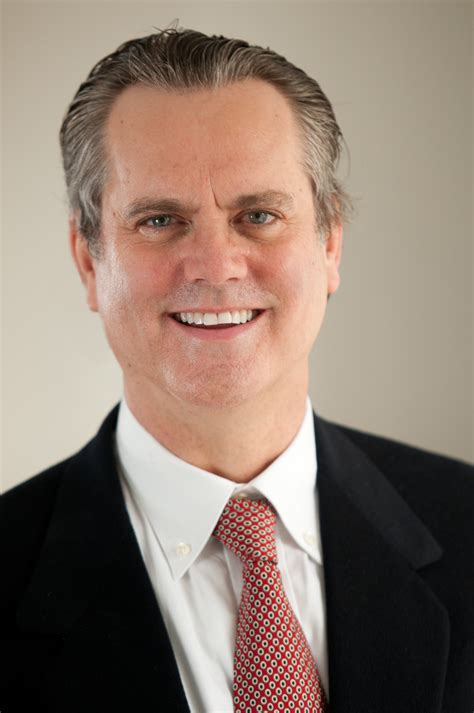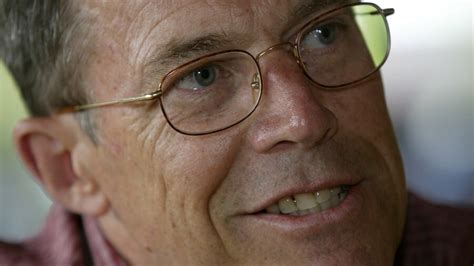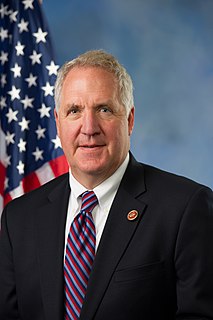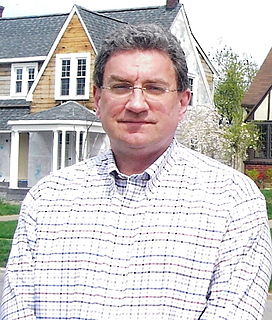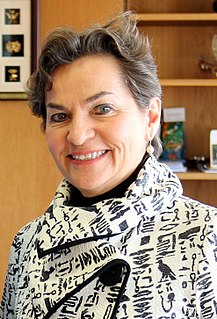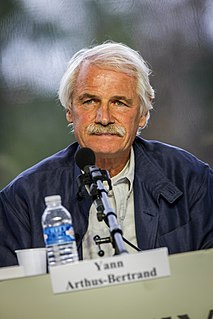Top 261 Greenhouse Quotes & Sayings - Page 4
Explore popular Greenhouse quotes.
Last updated on December 18, 2024.
In the current setting the situation of the poor is neglected despite the grotesque wealth of the capitalist elites, and the dangers to the well-being of humanity associated with climate change are ignored despite a strong scientific consensus warning of the adverse, and possibly irreversible, consequences of further delays in reducing the level of greenhouse gas emissions, especially carbon.
London life was very full and exciting [...] But in London there would be no greenhouse with a glossy tank, and no apple-room, and no potting-shed, earthy and warm, with bunches of poppy heads hanging from the ceiling, and sunflower seeds in a wooden box, and bulbs in thick paper bags, and hanks of tarred string, and lavender drying on a tea-tray.
Voluntary actions by corporations should not go beyond innovative win - win 'no regrets' initiatives. Greenhouse gas control practices that are uneconomic penalize either consumers or stockholders while politicizing the issue of corporate responsibility. Few will be satisfied, and the ineffectual measures will eventually have to be abandoned.
Under my plan of a cap and trade system, electricity rates would necessarily skyrocket… Because I’m capping greenhouse gasses, coal power plants, natural gas…you name it…whatever the plants were, whatever the industry was, they would have to retro-fit their operations. That will cost money…they will pass that money on to the consumers.
China is a main energy consumer and, therefore, is also a big greenhouse gas emitter. We must use energy resources rationally and must conserve. This needs us to adjust our economic structure, transform the mode of development, to make economic development more dependent on progress of science and technology and the quality of the work force.
There is no significant man-made global warming at this time, there has been none in the past and there is no reason to fear any in the future. Efforts to prove the theory that carbon dioxide is a significant 'greenhouse' gas and pollutant causing significant warming or weather effects have failed. There has been no warming over 18 years.
The simplest way to remove carbon dioxide, the main greenhouse gas, is to grow plants - preferably trees, since they tie up more of the gas in cellulose, meaning it will not return to the air within a season or two. Plants build themselves out of air and water, taking only a tiny fraction of their mass from the soil.
The money economy thus leaves a large ecological footprint, defined as the amount of land and resources required to meet a typical consumer's needs. For example, with only about 4% of the world's population, the United States, the largest money economy, consumes in excess of one-quarter of the world's energy and materials and generates in excess of 25 percent of the world's greenhouse gas emissions.
Being told about the effects of climate change is an appeal to our reason and to our desire to bring about change. But to see that Africans are the hardest hit by climate change, even though they generate almost no greenhouse gas, is a glaring injustice, which also triggers anger and outrage over those who seek to ignore it.
There are many who still do not believe that global warming is a problem at all. And it's no wonder: because they are the targets of a massive and well-organized campaign of disinformation lavishly funded by polluters who are determined to prevent any action to reduce the greenhouse gas emissions that cause global warming out of a fear that their profits might be affected if they had to stop dumping so much pollution into the atmosphere.
The climate crisis is both the easiest and the hardest issue we have ever faced. The easiest because we know what we must do. We must stop the emissions of greenhouse gases. The hardest because our current economics are still totally dependent on burning fossil fuels, and thereby destroying ecosystems in order to create everlasting economic growth.
Isn't it sad that you can tell people that the ozone layer is being depleted, the forests are being cut down, the deserts are advancing steadily, that the greenhouse effect will raise the sea level 200 feet, that overpopulation is choking us, that pollution is killing us, that nuclear war may destroy us - and they yawn and settle back for a comfortable nap. But tell them that the Martians are landing, and they scream and run.
People have not made the connection that the more of us there are, the more greenhouse gases go into the atmosphere. The Chinese have. They, unlike us, have a population policy. The right wingers just don't understand that the country they're in is probably the most overpopulated in the world, the one doing most of the destruction, and the one with horrendously bad leadership.
The gradual depletion of the ozone layer and the related "greenhouse effect" has now reached crisis proportions as a consequence of industrial growth, massive urban concentrations and vastly increased energy needs. Industrial waste, the burning of fossil fuels, unrestricted deforestation, the use of certain types of herbicides, coolants and propellants: all of these are known to harm the atmosphere and environment.
There would be no call for ecological campaigning had nature not been exploited and abused. We experience the ground now bringing forth thistles as soil erosion devastates formerly arable land and deserts overtake fertile farms. Rivers and the atmosphere are polluted thoughtlessly and we are fearful of the consequences of a depleted ozone layer and the devastation of the greenhouse effect. We are not quite at home in our world, and somewhere in each of us there is a nostalgia for a paradise that has been lost.
If our goal in legislating against carbon releases is not simply punishing the West and its power companies but truly trying to reduce the accumulation of greenhouse gasses in the atmosphere, the main event will be in the developing world. We must use the smartest possible economics, and that means investing in China and India.
It's there. The white rose among the dried flowers in the vase. Shriveled and fragile, but holding on to that unnatural perfection cultivated in Snows greenhouse. I grab the vase, stumble down to the kitchen, and throw its contents into the embers. As the flowers flare up, a burst of blue flame envelops the rose and devours it. Fire beats roses again.
The greenhouse crisis is the bill coming due for the Industrial Revolution. It's not an accident. It's the logical outcome of our world view - the idea that we can control the forces of nature, that we can have short-term expedient gains without paying for them, that there are no limits to exploitation of the environment, that we can produce and consume faster than nature's ability to replenish.
I think we need to address greenhouse gas emissions. But I try to get involved in issues where I see a legislative result... So I just leave the issue alone because I don't see a way through it, and there are certain fundamentals, for example nuke power, that people on the left will never agree with me on. So why should I waste my time when I know the people on the left are going to reject nuclear power?
I was really surprised to learn that there is no food date label standardization, which contributes significantly to why we waste so much food, which generates methane emissions, a powerful greenhouse gas, in landfill, and means that we are using lots of land, water, fertilizer and energy to produce food that no one eats.
We have at most ten years - not ten years to decide upon action, but ten years to alter fundamentally the trajectory of global greenhouse emissions... We are near a tipping point, a point of no return, beyond which the built in momentum and feedbacks will carry us to levels of climate change with staggering consequences for humanity and all of the residents of this planet.
I am not a climatologist, but I don't think any of the other witnesses are either. I do work in the related field of atomic, molecular and optical physics. I have spent my professional life studying the interactions of visible and infrared radiation with gases - one of the main physical phenomena behind the greenhouse effect. I have published over 200 papers in peer reviewed scientific journals.
I've been vegan for 15 years, and it turns out it makes a very big impact on the environment to eat fewer animal products, which cause more greenhouse gases than all of transportation combined. The United Nations did a study just over two years ago, and that blew my mind. I started thinking that if people are vegetarian for just one day a week, that makes a huge difference!
Because nitrous oxide [released by nitrate-fertilised soil] is 296 times stronger than CO? at global warming and methane [cow farts] is about 26 times as potent as CO?, the combined greenhouse effect of our livestock worldwide is greater than the sum total of all the cars, trains, busses, trucks, ships, airplanes and jets.
With time environmental issues got much more complicated. It is pretty easy, if you know what you are doing, to stop a company from pouring poison into a lake where kids swim. It is much harder to address all the myriad greenhouse gases emitted by different sources - from petrochemical refineries to hundreds of millions of peasants cutting down trees for their incredibly inefficient cook stoves.
There is not going to be, we can be quite certain, there's not going to be any action on reducing greenhouse gas emissions by China or India or Indonesia or Brazil unless all developed countries are making a major effort. It will still be a big job to get them in, even if we are all making the effort. But our making the effort is a necessary condition.
The international equity question arises from the costs of climate change itself and mitigation varying greatly across countries. It is affected by the historical responsibility for current greenhouse gas emissions, which countries which were not responsible for what's in the atmosphere now think are very important. Currently rich countries don't think those issues are very important.
We [US] are the biggest per person, by a substantial amount, greenhouse emitters, and we give the most foreign aid, not per person but in absolute. This is another issue where hopefully we will take a long-term approach which, even though we sometimes have a hard time doing that, it's easier for us, as a rich country with this kind of scientific depth, than it is for the poor countries who will suffer the problems.
Many of our actions degrade our habitat because we undertake them in order to reach goals whose allure blinds us to myriad dire consequences. In order to fuel our complex civilizations, we are lacing our planet's atmosphere with carbon dioxide, a greenhouse gas that, if it has not already begun doing so, will soon warm the Ice Age climate to which we owe our very existence.
We have no choice: we must protect Arctic ice, enable it to continue to act as an essential temperature regulator for the planet, avoid the catastrophic rise in sea levels that would result from the ice melt, and stop the disappearance of permafrost releasing irreversible quantities of greenhouse gases back into the atmosphere.
I think when it comes to climate change, the single most important thing in the world is for the United States' Congress to pass an effective bill that will put a price in carbon because if it starts costing something to emit carbon, this will provide an incentive, people do act on the basis to some extent of economic incentives to emit fewer greenhouse gases.
Once a century, all of a certain kind of bamboo flower on the same day. Whether they are in Malaysia or in a greenhouse in Minnesota makes no difference, nor does the age or size of the plant. They flower. Some current of an inner language passes between them, through space and separation, in ways we cannot explain in our language. They are all, somehow, one plant, each with a share of communal knowledge.
I think that once people understand the great risks that climate change poses, they will naturally want to choose products and services that cause little or no emissions of greenhouse gases, which means 'low-carbon consumption.' This will apply across the board, including electricity, heating, transport and food.
It is critical that the world captures every last bit of energy efficiency, if we are to reduce greenhouse gas emissions enough to keep below dangerous rises in temperature. I am pleased that this important new study shows how information and communication technology can play an essential role in saving energy. Now we need more and effective government policies that reward such action and penalize delayed responses.
If the relatively rich participating countries want to stabilize atmospheric concentrations of greenhouse gases, they will have to pay at least some poor countries to reduce their emissions. Achievement of substantial reduction in this way implies international transfers of wealth on a scale well beyond anything in recorded history. There is no effective political support for such a Herculean effort, particularly in the United States.
The fact is that seven per cent of the global population emits 50 per cent of greenhouse gas emissions, and the proportions are the same for the use of energy and raw materials, meat, wood, etc. Simply put, an infinitesimal minority consumes the most and imposes damage on the overwhelming majority, while asking it to change.
Coal ash gets far less attention than toxic and greenhouse gas emissions from power plants, but it has created environmental and health problems - every major river in the Southeast has at least one coal ash pond - and continuing legal troubles and large cleanup costs for the authority and other utilities.
We will pay for this [climate change] one way or another. We will pay to reduce greenhouse-gas emissions today and we'll have to take an enormous hit of some kind. Or we will pay the price later in military terms. And that will involve human lives. There will be a human toll. There is no way out of this that does not have real costs attached to it.
Connect with people, visibly and loudly showcase initiatives that reduce greenhouse gases emissions, nurture youth leaders, or spread the message by raising awareness through campaigns. I am convinced that your contributions will ensure that climate change solutions safely power our - and especially your - future.
It's very important that we expand our use of clean energy and make a long-term commitment to it. Biodiesel and ethanol are better for the environment and for the air we breathe. The use of biodiesel is a positive step toward minimizing pollutive emissions and greenhouse gases. By focusing on school buses, we can affect the health and wellbeing of the people most susceptible to that pollution - our children - today.




